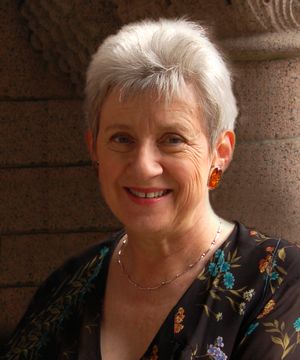Joan Morris
 Born in Portland, Oregon, mezzo-soprano Joan Morris attended Gonzaga University in Spokane prior to her scholarship studies at the American Academy of Dramatic Arts in New York. She continued speech and voice studies with Clifford Jackson and Frederica Schmitz-Svevo while appearing in off-Broadway and road productions and with harpist Jay Miller at the Cafe Carlyle, the Waldorf-Astoria’s Peacock Alley, and other Manhattan night spots.
Born in Portland, Oregon, mezzo-soprano Joan Morris attended Gonzaga University in Spokane prior to her scholarship studies at the American Academy of Dramatic Arts in New York. She continued speech and voice studies with Clifford Jackson and Frederica Schmitz-Svevo while appearing in off-Broadway and road productions and with harpist Jay Miller at the Cafe Carlyle, the Waldorf-Astoria’s Peacock Alley, and other Manhattan night spots.
Since 1973 Joan Morris has concertized with her husband and accompanist, William Bolcom, singing popular songs from the late 19th-century through the 1920s and ’30s, the latest songs by Leiber and Stoller, and cabaret songs by Bolcom and poet-lyricist Arnold Weinstein.
In the words of the Chicago Tribune, “Her voice is notable for ease, flexibility, expressiveness; you understand every word she sings, and in these songs the words deserve to be heard. She projects not just a song, but the character singing it, and gives that character her own irresistibly funny and winning personality.”
From 1981-2009 Ms. Morris taught a cabaret class at the School of Music, University of Michigan. In April 1998 she produced a new musical there, Mina and Colossus, written by the young composer Sam Davis and based on the life of poet Mina Loy. In April 2003 Ms. Morris wrote, produced, co-directed, and starred in a musical revue, The Police Gazette, based on materials housed in the Clements Library at the U of M. In December 2005 she wrote, produced, directed, and had a featured role in Barnum’s Nightingale, based on Jenny Lind’s concert tour of America in 1850 sponsored by P. T. Barnum. The latter two entertainments were presented at the Clements Library where Ms. Morris was Adjunct Curator. She retired from the University of Michigan in December 2009.
In April 2004 Ms. Morris was a soloist in the performance of Bolcom’s Songs of Innocence and of Experience (texts by William Blake), which celebrated the reopening of the newly-renovated Hill Auditorium in Ann Arbor, Michigan. The concert, which combined 450 orchestra and chorus members from the University of Michigan School of Music and community with professional soloists, was conducted by Leonard Slatkin and took place almost 20 years to the day after its 1984 U.S. premiere. The Naxos recording of this event went on to win four Grammy Awards, garnering recognition for her as Soloist on the album. In 1984 she sang in the world premiere of Bolcom’s Songs of Innocence and of Experience in Stuttgart and the U.S. premiere in Ann Arbor. She has also performed Songs with the BBC Symphony Orchestra in London's Royal Festival Hall, which was broadcast live over BBC Radio 3 (1996), and in Costa Mesa with the Pacific Symphony Orchestra (2003).
In 1979 she played the role of Polly in the Guthrie Theater’s production of The Beggar’s Opera (with music by Darius Milhaud and William Bolcom). In the 1987 premiere of Bolcom’s Fourth Symphony, she sang the lyrics of Theodore Roethke's poem "The Rose" with the Saint Louis Symphony Orchestra conducted by Leonard Slatkin; the 1988 recording on New World Records was subsequently nominated for a Grammy. She repeated the work with The Seattle Symphony Orchestra in May 1996. In April 1990 she was featured in the world premiere of the Weinstein/Bolcom musical theater work, Casino Paradise, and can be heard on the cast album issued by Koch Classics. She repeated her part as The Nurse for the May 2004 revival at The Prince Music Theater in Philadelphia and again as part of the American Songbook Series in the Allen Room of Jazz at Lincoln Center in February 2005. In January 2007 she narrated Walton's "Facade Suite" with the Boston Symphony Chamber Players.
On their travels throughout the United States, Canada, and abroad, Joan Morris and William Bolcom frequently give master classes focusing on "classic American popular song." Recent residencies have been at College Conservatory of Music in Cincinnati, Northwestern University, Rice University (Houston, TX), SongFest (Los Angeles, CA), and the University of Wisconsin/Madison. Occasionally they can be heard underlying TV documentaries featuring the American Popular Song era.
